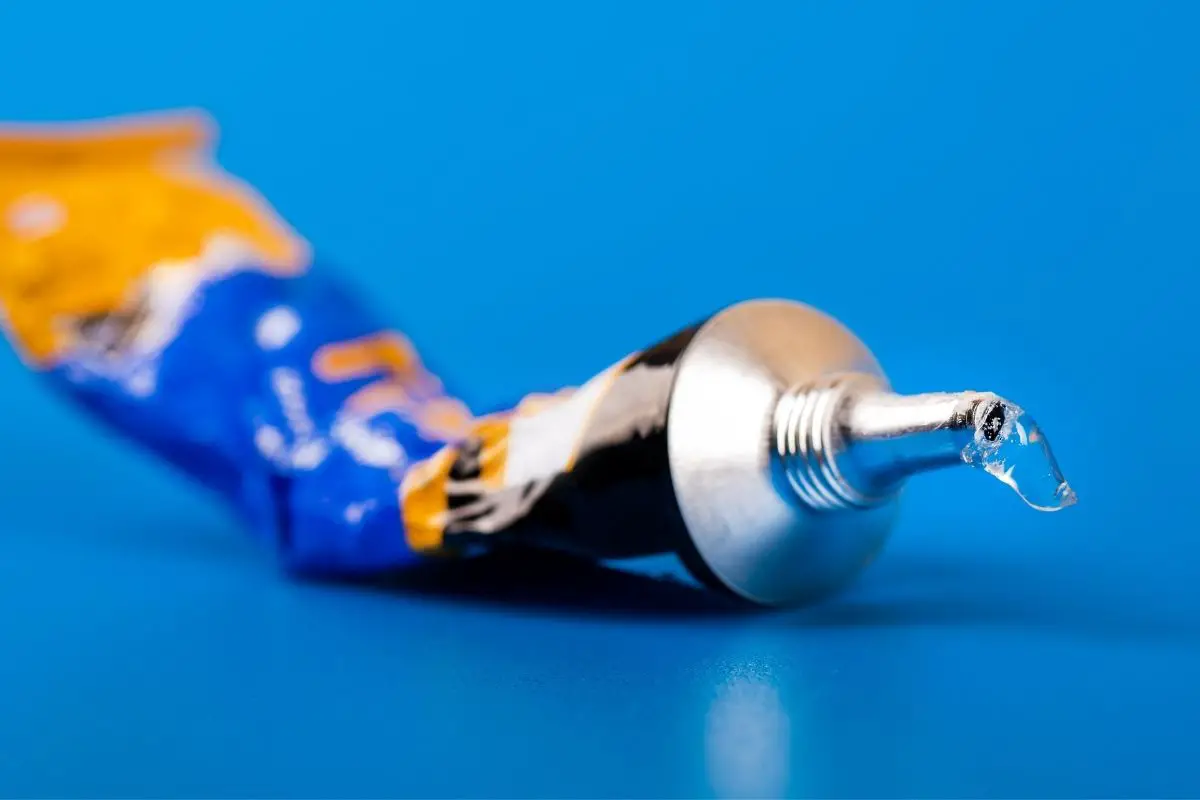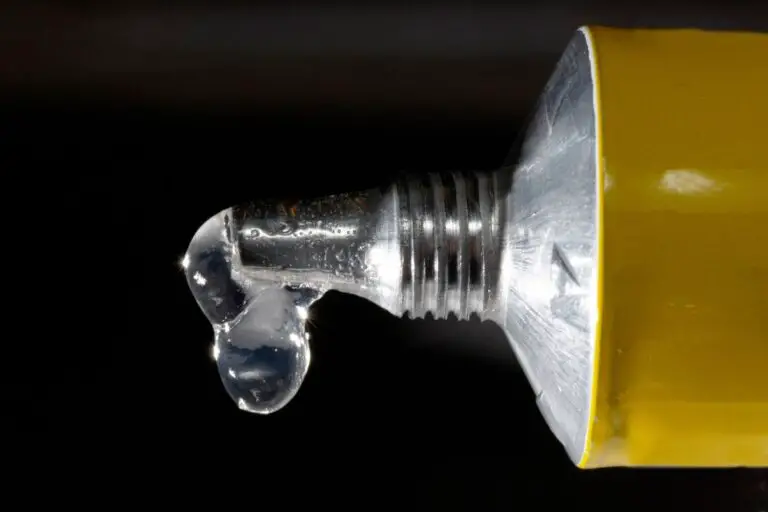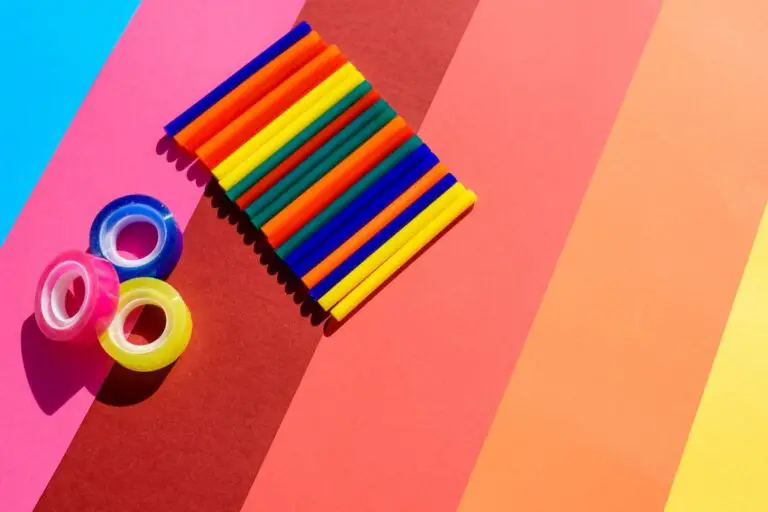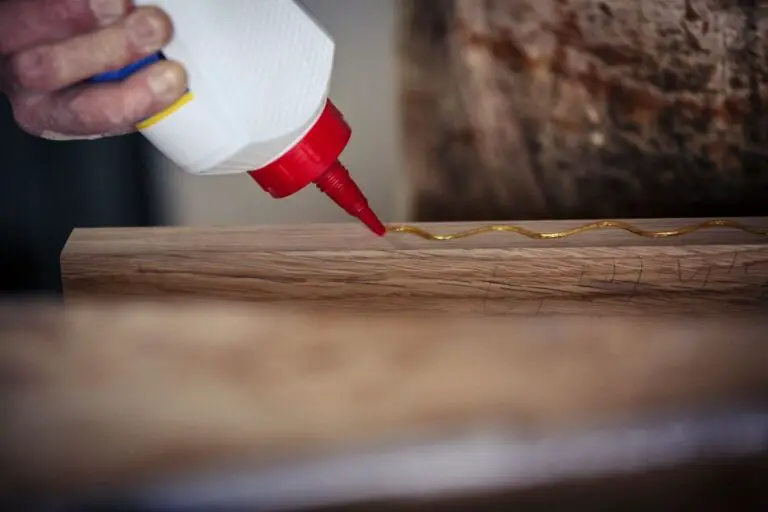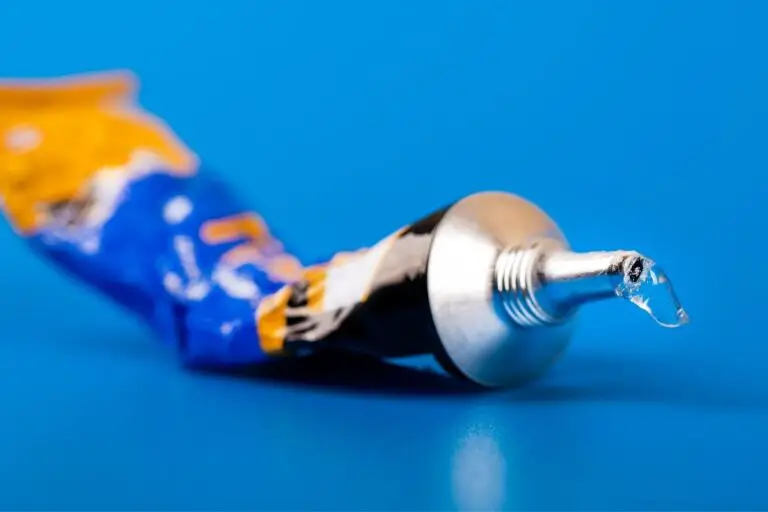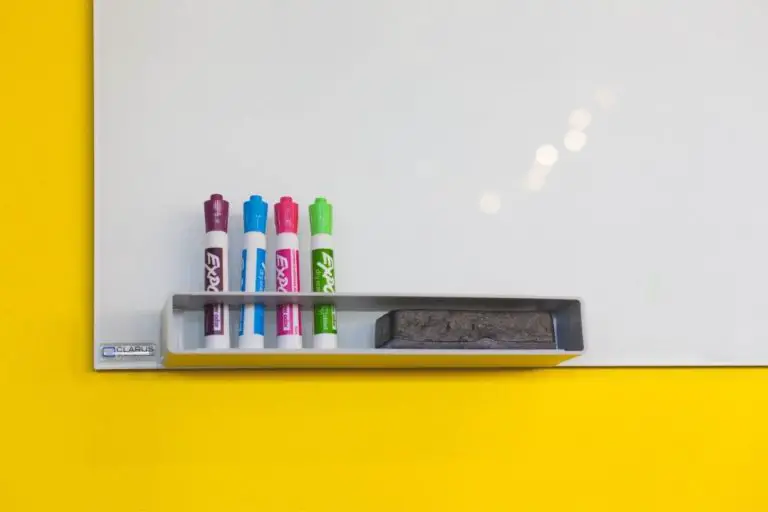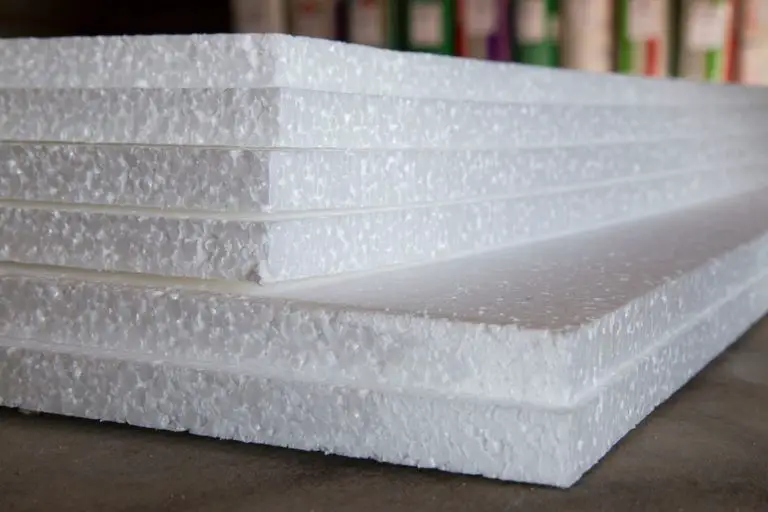Can You Eat Super Glue? What Happens if You Do?
Children, and even adults, are often curious about what glue tastes like, and at some point, they will try to eat it. This might be safe with small amounts of PVA glue as it’s non-toxic, however, it is not the same with high-strength types of glue such as super glue.
So, can you eat super glue? You can’t eat super glue because it contains cyanoacrylate which is a toxic chemical that can cause serious harm when ingested. This kind of glue bonds quickly when it comes in contact with moisture so it might get stuck to the inside of your mouth. If you swallow the superglue, it will cause a blockage in your digestive tract leading to severe abdominal pain, nausea, and vomiting.
Keep reading to learn more about how super glue works and what makes it so dangerous to eat
Contents
What Is Super Glue?

Super Glue, also known as Crazy Glue, is a kind of glue that contains a chemical compound called cyanoacrylate. This chemical gives the glue the ability to form bonds quickly and strongly with various kinds of surfaces including metal, stone, ceramics, foam, plastic, and even glass.
If you are interested to learn how water-based adhesives are made, you can start by checking out this article on how glue is made.
How Does Super Glue Work?
Super Glue is different from traditional water-based adhesives. That is because the main ingredient in Super Glue is cyanoacrylate which is an acrylic monomer that transforms to a plastic-like form when it dries ensuring a strong long-lasting bond with any surface it’s used on.
It’s also different from other adhesives because it requires special bonding conditions to be completely effective. Basically, super glue will not bond with a surface unless there’s moisture present. So, if you try to use it on a completely dry surface, it will not be effective or form any bond with that surface.
In the presence of moisture, the molecules in the glue will react very quickly and form tight chains between the two surfaces you’re trying to stick together.
Is Super Glue Toxic?
Super Glue is considered a toxic adhesive as it contains many harmful chemicals such as cyanoacrylate, ethanol, xylene, N-hexane, toluene, and light aliphatic naphtha.
These chemicals can cause serious health issues if they’re inhaled or ingested. The glue can also cause severe irritation or infection if it comes in contact with your bare skin or eyes.
What Happens If You Eat Super Glue?
If you eat Super Glue, you will experience some problematic symptoms. The severity of these symptoms will depend mainly on the amount of glue you ingested.
Once the super glue gets inside your mouth, it will quickly start to bond and harden due to the presence of moisture.
If it’s only a small amount of glue, there’s a chance that you will not swallow it and it will remain stuck to your teeth or the inside of your mouth.
However, if it’s a large amount of glue, you’re more likely to accidentally swallow it which means it will bond and harden while it’s in your digestive tract. This can lead to the possibility of gluing the walls of your intestines together causing a blockage as well as severe abdominal pain, nausea, and vomiting.
What to Do If You Get Super Glue in Your Mouth?
If you get super glue into your mouth, try to immediately spit it out before it starts to bond. Do not try to rinse your mouth with water as this will only accelerate the bonding process.
If the glue is already bonded and stuck to the inside of your mouth cavity, tongue, or teeth try eating peanut butter or drinking some vinegar to soften the glue before spitting it out. Try not to swallow any amount of glue as much as possible to avoid causing more damage.
If the glue remains stuck to the inside of your mouth cavity or if you accidentally swallow some of it, it’s highly recommended to seek professional medical or dental attention.
Why Do People Eat Glue?

People, children or adults, mostly eat glue out of boredom or curiosity not realizing it could make them sick. Since many types of glue are labeled as “non-toxic”, it might seem safe to try to get a taste.
However, “non-toxic” doesn’t always mean edible or food-safe. It’s generally advised not to eat any type of glue because it’s not made to be eaten, it doesn’t taste good, and it doesn’t provide any kind of nutritional value.
So, glue should not be consumed or used in any way other than what it was intended for as an adhesive.
Related Questions
Is PVA Glue Harmful?
PVA glue is not harmful as it’s manufactured from completely non-toxic materials. It doesn’t emit any harmful fumes and it’s safe to get on your skin without causing short or long-term damage. That’s why this kind of glue is often used by children in schools for art and craft projects.
You can learn how to use PVA glue for your crafts in this article on using pva glue with acrylic paint.
What Kind of Adhesive Do Dentists Use?
The kind of adhesive that dentists use is called Permanent Dental Glue and it contains zinc phosphate. It’s one of the oldest and most dependable glues that dentists use when applying permanent crowns. Other kinds of adhesive that dentists use include glass ionomer (GI), and resin-modified glass ionomer (RMGI) which are made from polyacrylic acid liquid and fluoroaluminosilicate glass powder.
Can You Use Rubbing Alcohol to Remove Super Glue?
You can use rubbing alcohol to remove Super Glue from various hard surfaces. All you need to do is pour enough of the alcohol over the glue spot and let it sit for about 5-10 minutes. This will help loosen the glue’s bond with the surface and allow you to easily scrape it off.
What Happens If Super Glue Gets in Your Eyes?
If Super Glue gets in your eyes, it will burn and sting a lot at the beginning. If your eyelids are not stuck together, you can just rinse your eyes with water. However, if your eyelids are stuck, do not try to force them open or use any chemicals to dissolve the glue. It’s best to apply warm compresses over the eye to soften the glue then you can gently dab your eyelids with a cotton pad soaked in coconut oil to remove the glue completely.
Helpful Resources
If you like this article, share it!

